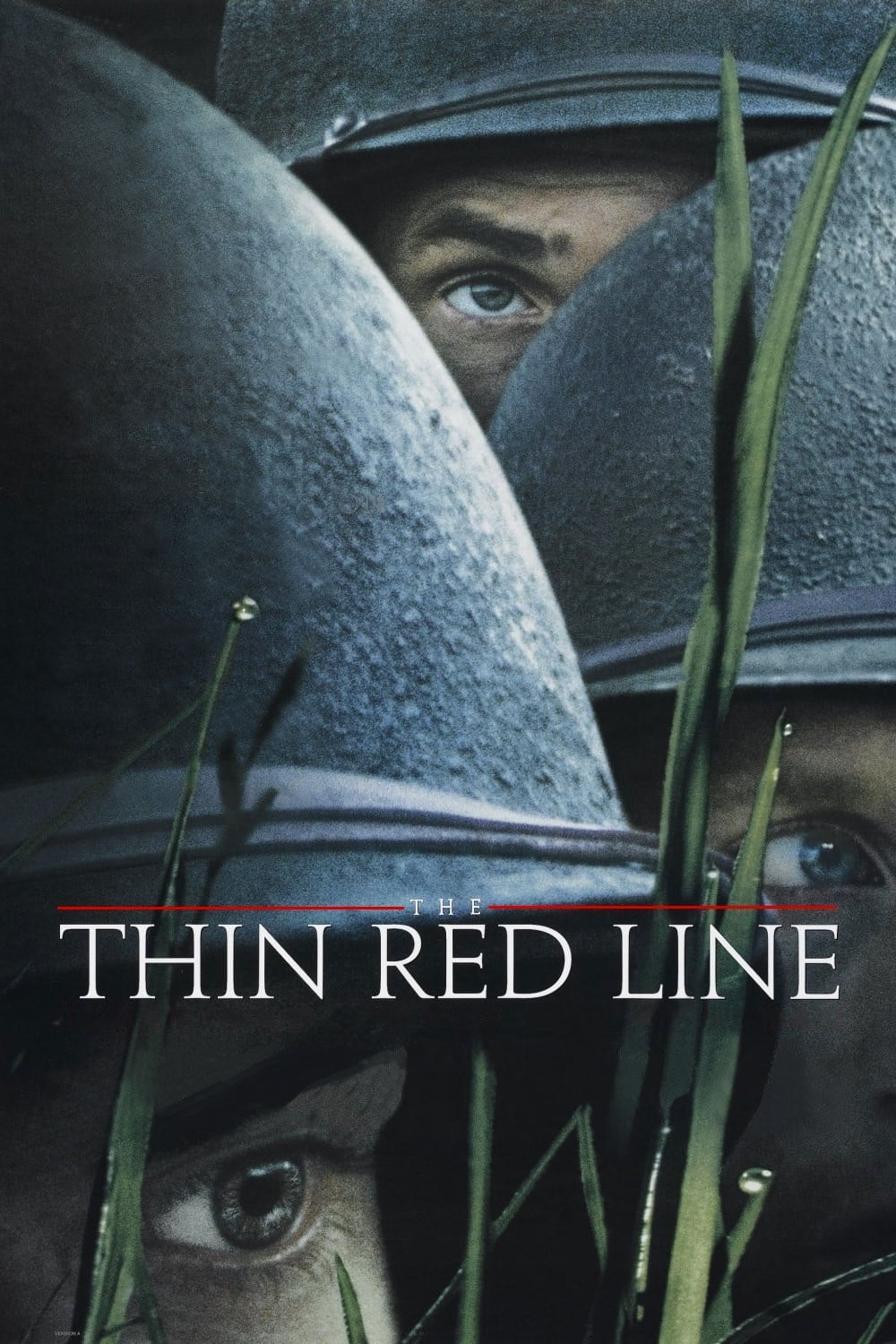
The story of a group of men, an Army Rifle company called C-for-Charlie, who change, suffer, and ultimately make essential discoveries about themselves during the fierce World War II battle of Guadalcanal. It follows their journey, from the surprise of an unopposed landing, through the bloody and exhausting battles that follow, to the ultimate departure of those who survived.
04 Dec The Thin Red Line (1998)
Wittgenstein’s Red Line of Abstraction
I met Malick in 68-69 at MIT where I was taking a degree in philosophy. MIT had the decade before gone through a soul-searching re-evaluation of the type of scientist it was producing, and concluded that they could do much better in working toward well-rounded citizens. So by the end of the 60’s they had collected – for a few years only – perhaps the strongest collection of newly emergent thinkers in the humanities. And it was quite a rich stew of ideas for a young person, the most exciting place in the world for the humanities for perhaps five years.
Malick came in with this pack, concerned with newly emerging ideas about meaning and language. The philosophy establishment was forming a new split (US and Continentals) largely characterised by how to reinvent Wittgenstein’s insights but with a more friendly rationale. Chomsky was shaking one world, formal abstraction for computers in another realm. Exciting — more so than today. But Malick was not a verbal communicator, nor a logician, nor an academic (all sides of the same thing). So he dove into practical visual semiotics.
He is not a brilliant man, merely a journalist. But he does seem to be particularly honest and understands some damned good, solid, human ideas compared to other filmmakers. One can really see this early MIT exposure in ‘Red Line.’
We can thankfully forget plot — there is not meant to be any story. In fact, the war is only used here as a canvas of motion, abstractions of ‘regular’ life, colliding and sometimes adhering to souls, sometimes destroying them. The device is to build the film around the sounds: narrative voiceovers (current and remembered), natural sounds, haunting music. The images are attached to the sounds, which are derived from abstractions. This is exactly the reverse of Spielberg, which is why there cannot be any comparison to ‘Private Ryan,’ or any other film that is ‘about’ something. It is why Malick can never ‘explain’ his films.
The execution is hypnotic. I wonder what the six-hour version is like. The editing (and particularly of the sound) is unusual, so transports us beyond the strangeness of tropics, war, history. That editing is much like Van Morrison’s music: it establishes the rhythm only as a reference to dance around, peeking in and out. The relationship of the rhythm within the shots to the rhythm of the shots is very bluesy.
Having no story opens new possibilities and creates unfamiliar problems. An opportunity is that the film can have many centres: the meditator in the midst of the attack on the camp; the squabble of the villagers; the transport of the ship; the need to look at our own dogtags. The challenge is how to end. When you stick to a formula like Spielberg, you just turn the crank and the climax lifts and comes down, and the story finishes. No story, no formula, so Malick brackets with the transport to and from the island, by the aging of the southern rookie, and by the exit from and re-entry to a world of unfamiliar characters. That they are played by familiar actors (Travolta, Clooney) oddly emphasises the point.
It must have been educational to work on this film, which is why every intelligent actor (or an actor with an intelligent agent) wanted to participate: one can see direct influence in Penn’s ‘The Pledge’ and Cusack’s ‘High Fidelity,’ both highly abstract.
Penn knew exactly what he was doing here. He moves in the action, as an actor must. But he places his character offscreen in the abstract voiceovers. That’s the ‘real’ Welsh, and the film’s image only an abstraction. He truly understands presenting many dimensions simultaneously. Harrelson doesn’t, but that’s the point with Keck. I wonder why Depp didn’t make the cut?
Posted in 2001
Ted’s Evaluation — 4 of 3: Every cineliterate person should experience this.


No Comments